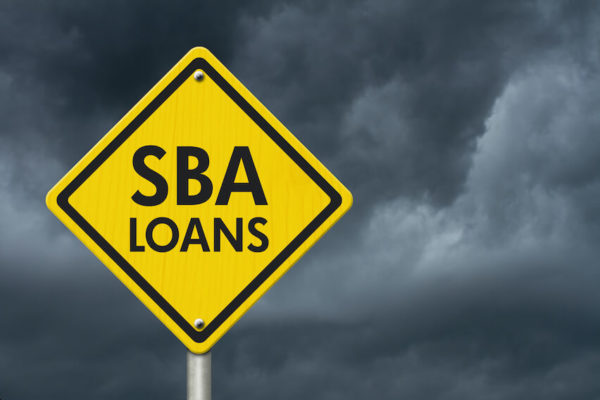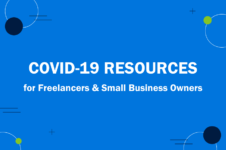Already have PPP funding? Our bookkeeping partners at Bench break down what you need to know about PPP loan forgiveness.

Round two of the PPP loan program is here, and more small business owners are getting the funds they need. If you received a PPP loan, there are some important steps you need to take in order to turn your loan into a forgivable, non-taxable grant. Here’s how to qualify for loan forgiveness, and what documents you’ll need to apply.
What Can I Spend My PPP Loan Funds On?
Your eligibility for loan forgiveness depends on how you spend your funds. You can use your PPP loan for the following:
Payroll
Payroll includes salary, wage, vacation, parental, family, medical or sick leave, and health benefits. There are a few caveats, however:
- At least 75% of your loan must be used for payroll costs. Payments to independent contractors cannot be included in the payroll costs.
- You must maintain the number of employees on your payroll.
- You must maintain at least 75% of their total salary.
If you had to let go of employees prior to receiving your PPP loan, you can rehire any staff and reinstate any pay that was decreased by more than 25% to meet the requirements for forgiveness.
You have until June 30, 2020 to rehire these employees and restore salary levels. Otherwise, your forgiveness amount will be reduced.
For example, if you had ten employees on payroll before and now only have eight employees, the amount of your loan that can be forgiven will be reduced by 20%.
Rent, Mortgage Interest, and Utilities
As long as your lease agreement, mortgage interest, or utility services were in effect before February 15, 2020 you can use up to 25% of your loan funds for these non-payroll costs.
For further reading, check out our complete guide to PPP Loan Forgiveness.
I’m Self-Employed With No Employees—How Do I Use My Funds?
If you’re self-employed, you’re entitled to use the PPP loan to replace lost compensation due to the impacts of COVID-19. However, new guidance prevents self-employed individuals from claiming the entire amount as income replacement.
If you have mortgage interest, rent, or utility expenses, you must have claimed or be entitled to claim a deduction for those expenses on your 2019 Form 1040 Schedule C in order for these to be eligible for forgiveness. This means that you need to either have your 2019 taxes filed, or prepared and ready to file.
If you worked in an office space in 2019 and did not have a home office, you cannot claim a deduction on your home mortgage interest. Even if you are currently working at home now, you are not eligible to claim home mortgage interest payments for forgiveness.
For more information, check out this article on PPP Forgiveness for Independent Contractors and Sole Props.
Keep Track of Spending During the Eight-Week Loan Period
Once your PPP loan funds have been disbursed, it’s critical to keep track of how you spend these funds over the next eight weeks. Make sure you have a digital receipt for every PPP-related expense—your lender will likely require these documents in digital format, so take the time to scan any paper documents and keep backups of your digital records.
Accurate accounting or bookkeeping software will streamline this process, and make it easy for you to find PPP-related expenses when the time comes to apply for forgiveness.
How to Apply For Loan Forgiveness
Applications for loan forgiveness will be processed by your lender, and they’ll provide you with instructions on where to apply. Here’s what you’ll need:
- Documents verifying the number of full-time equivalent employees on payroll and their pay rates, for the periods used to verify you met the staffing and pay requirements:
- Payroll reports from your payroll provider
- Payroll tax filings (Form 941)
- Income, payroll, and unemployment insurance filings from your state
- Documents verifying any retirement and health insurance contributions
- Documents verifying your eligible interest, rent, and utility payments (canceled checks, payment receipts, account statements.)
Double-check with your lender to see if they require anything else in order to get your loan forgiven. Once you’ve fulfilled all their requirements, submit your forgiveness application to your lender with the proper documentation within 90 days after the final day of your eight-week loan term. After you submit your application for forgiveness, your lender is required by law to provide you with a response within 60 days.
Get Support from the Bench Team
Want to boost your chances of PPP loan forgiveness with up-to-date bookkeeping and organized financials? Bench can help make sure your current financials are in order, and walk you through the statements, records, and documents you’ll need to apply for forgiveness.

Written by Sarah Johnson, Writer, Bench Accounting
Posted on June 5, 2020
 U.S. COVID-19 Relief: SBA Disaster Loans
U.S. COVID-19 Relief: SBA Disaster Loans New: Features to Help Your Business Through COVID-19
New: Features to Help Your Business Through COVID-19 How Small Business Owners Can Prepare for a Recession
How Small Business Owners Can Prepare for a Recession




